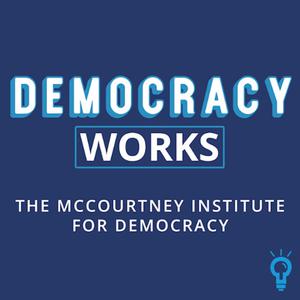
Democracy Works
Penn State McCourtney Institute for Democracy
The Democracy Works podcast seeks to answer that question by examining a different aspect of democratic life each week — from voting to criminal justice to the free press and everything in between. We interview experts who study democracy, as well as people who are out there doing the hard work of democracy day in and day out. The show’s name comes from Pennsylvania’s long tradition of iron and steel works — people coming together to build things greater than the sum of their parts. We believe that democracy is the same way. Each of us has a role to play in building and sustaining a healthy democracy and our show is all about helping people understand what that means. Democracy Works is part of The Democracy Group, a network of podcasts that examines what’s broken in our democracy and how we can work together to fix it.
- 44 minutes 3 secondsSeason finale: Reflecting on a new political era
This episode marks the first time that all five of our hosts (Michael Berkman, Chris Beem, Cyanne Loyle, Candis Watts Smith, and Jenna Spinelle) are together on one episode. It's also the first time we've all been together since the election. We take some time to reflect on changes in America's political party, the decline of liberal democracy in the U.S., and how to harness the good from social media amid growing extremism and misinformation.
Along the way, you'll hear from some of the guests who've appeared on the show this year:
- Joe Wright: How personalist parties destabilize democracy
- Cassidy Hutchinson: Is there room for Republicans in the Democratic party?
- Alex Lefebvre: Can democracy exist without liberalism?
- Matthew Rhodes-Purdy: How populism spreads
- Cynthia Miller-Idriss: The rise of online extremism
- V Spehar: Social media as tool for community building
From the entire Democracy Works team, best wishes for a happy holiday season! We'll see you in 2025.
23 December 2024, 10:00 am - 46 minutes 35 secondsSustaining democracy during wartime
Balazs Trencsenyi, co-director of Invisible University for Ukraine (IUFU), joins us to discuss the university's work to uphold education and democracy in Ukraine amid the country's ongoing war with Russia. IUFU, an initiative of Central European University was founded shortly after the start of the war in 2022. Since then, more than 1,000 students have taken online and in-person courses taught by faculty around the world.
Trencsenyi is a professor of historical studies at CEU and and director of the university's Institute for Advanced Studies. He is a historian of East Central European political and cultural thought. He's witnessed Hungary's democratic erosion firsthand and discusses Viktor Orban's rise to power and how he's slowly dismantled the country's democratic institutions.
IUFU received the 2024 Brown Democracy Medal from the McCourtney Institute for Democracy. Trencsenyi and IUFU student assistant Nataliia Shuliakova visited Penn State in October to accept the award.
Read the 2024 Brown Medal book from IUFU students and faculty
9 December 2024, 10:00 am - 43 minutes 11 secondsTelling America's story at the National Archives
Colleen Shogan, archivist of the United States, joins us for a conversation about democratizing access to national records and running a non-partisan organization in an increasingly polarized country. Shogan was appointed by President Biden and has been criticized by both sides of the political spectrum for trying to use the National Archives to tell a partisan story about America's history.
Shogan is a political scientist by training and talks about making the transition from academia to government and how her background as a scholar of the presidency informs the work she does now. We also discuss the National Archives and Records Administration's efforts to digitize billions of records housed in facilities across the country.
We recorded this episode before the 2024 election, but as you'll hear, it takes on new significance in the face of a second Trump administration.
Mentioned in this episode:
National Archives Citizen Archivist program
25 November 2024, 10:00 am - 41 minutes 4 secondsBad Watchdog: The Red Herring
We're excited to bring you an episode from Bad Watchdog, the podcast from the Project on Government Oversight and one of our colleagues in The Democracy Group podcast network. This is the first episode of the show's second season, which takes a deep dive on the Department of Homeland Security (DHS).
Established in the wake of September 11, the DHS was entrusted with protecting the U.S. from national security threats. Since then, much of the agency’s focus has been on the southern border — with tens of thousands of people held in its detention centers on a daily basis. Host Maren Machles explores how this came to be and delves into what happens to people held in immigration detention centers with the presumption that they may be national security threats. And she asks the question: How does this relate to the way DHS addresses the most dangerous threat currently facing our nation — far-right violent extremism?
To find out, host Maren Machles talks with Daryl Johnson, who recounts his work as the former lead analyst for domestic terrorism at DHS. She also speaks with Alejandro Beutel, a criminologist who focuses on domestic terrorism, and Berto Hernandez, who shares their story of being brought into the U.S. as a child and held in detention by Immigration and Customs Enforcement years later.
18 November 2024, 10:00 am - 33 minutes 49 secondsHow strong is support for democracy?
We are collecting our thoughts about what's next for democracy following the 2024 election and will take up the question during our end-of-year episode in December.
Democracy Works host Michael Berkman, director of the McCourtney Institute for Democracy and professor of political science at Penn State talks with Christopher Claassen, a political scientist at the University of Glasgow, about how to measure support for democracy across countries and across generations.
Claassen grew up in South Africa and was 16 when the country held its first democratic elections. His interest in democracy continued through college and into his career as a political scientist. Today, he is a professor of political behavior at the University of Glasgow. One area of his research focuses on how to measure support for democracy. In a recent paper, he and colleagues developed 17 survey questions that cover all eight components of liberal democracy as defined by the V-Dem project in an effort to refine what people mean when they say the support or don't support democracy.
Berkman and Claassen also discuss how support for democracy is part of the 2024 U.S. election. Note that this interview was recorded in late October 2024 before the election took place.
Referenced in this episode:
McCourtney Institute for Democracy Mood of the Nation Poll
Episode with Cynthia MIller-Idriss on communities and political extremism11 November 2024, 10:00 am - 45 minutes 41 secondsHow the Supreme Court could shape the 2024 election
Dahlia Lithwick has covered the Supreme Court since the landmark Bush v. Gore decision in 2000. In that time, she's seen a sea change in the court itself, as well as the way that journalists cover it. We discuss those trends in this episode, as well as how former President Trump's legal team has changed since the 2020 election.
Lithwick is the host of Amicus, Slate’s podcast about the law and the Supreme Court, and author of "Lady Justice: Women, the Law, and the Battle to Save America." She has held visiting faculty positions at the University of Georgia Law School, the University of Virginia School of Law, and the Hebrew University Law School in Jerusalem.
Referenced in this episode:
How Chief Justice Roberts shaped Trump's Supreme Court winning streak - New York Times
"Stop the Seal" 2.0 is here and it's scarily sophisticated - Slate
We helped John Roberts construct his image as a centrist. We were so wrong. - Slate
28 October 2024, 9:00 am - 45 minutes 31 secondsEddie Glaude Jr. on the peril of outsourcing democracy
With just weeks to go before the election, voting and candidates are top of mind of many of us. It's easy to think that once our preferred candidates win, our obligations to democracy are finished until the next election. Scholar and author Eddie Glaude Jr. has spent his career studying the perils of that approach throughout history, particularly when it comes to Black politics and power. Glaude joins us to discuss how he's thinking about the 2024 election, the difference between hope and joy, and why we can't outsource democracy solely to elected representatives.
One of the nation's most prominent scholars, Glaude's work examines the complex dynamics of the American experience. He is the author of "We are the Leaders We Have Been Looking For," "Democracy in Black: How Race Still Enslaves the American Soul,"and "Begin Again: James Baldwin's America and Its Urgent Lessons for our Own." He is the James S. McDonnell Distinguished University Professor of African American Studies, a program he first became involved with shaping as a doctoral candidate in Religion at Princeton. He is also on the Morehouse College Board of Trustees. He frequently appears in the media, as a columnist for TIME Magazine and as an MSNBC contributor.
14 October 2024, 9:00 am - 38 minutes 43 secondsLiberalism is a lifestyle
Chris Beem talks with political theorist Alexandre Lefebvre about why liberalism is more than just a political ideas and procedures, and how abiding by liberal principles can enhance your life far beyond politics.
In his book Liberalism as a Way of Life, Lefebvre argues that liberalism isn’t just a set of neutral procedures; it’s a comprehensive way of life that shapes the way we live and think and work and love in innumerable ways. He also argues that it’s a way of life worth robustly defending, drawing on examples from pop culture and recent history.
Lefebeve is a professor of politics and philosophy at the University of Sydney. He teaches and researches political theory, the history of political thought, modern and contemporary French philosophy, and human rights.
30 September 2024, 9:00 am - 41 minutes 12 secondsThe immigration stories that aren't told
Immigration is a perennial issue in American politics, but the rhetoric we hear from candidates on the campaign trail is often very different than the day-to-day experiences of migrants traveling from central America to the United States and the smugglers who help them make the often dangerous journey to get here. In an effort to better understand this essential yet extralegal billion dollar global industry, anthropologist Jason De León embedded with a group of smugglers moving migrants across Mexico over the course of seven years. The result is the book "Soldiers and Kings: Survival and Hope in the World of Human Smuggling," which we discuss on this episode. The book is a finalist for the 2024 National Book Award!
De León is Professor of Anthropology and Chicana/o Studies at the University of California, Los Angeles with his lab located in the Cotsen Institute of Archaeology and Executive Director of the Undocumented Migration Project, a research, arts, and education collective that seeks to raise awareness about migration issues globally while also assisting families of missing migrants be reunited with their loved ones. He is also a 2017 MacArthur Foundation Fellow and a Penn State alumnus.
Finally, we are excited to welcome Cyanne Loyle, associate professor of political science at Penn State, to the Democracy Works team. She was a guest host in the spring and will be joining the permanent lineup with Michael Berkman, Chris Beem, and Candis Watts Smith.
16 September 2024, 9:00 am - 47 minutes 30 secondsHow the National Popular Vote could change presidential elections
We're back from summer break with a deep dive on the National Popular Vote campaign, an effort to render the Electoral College obsolete when states pledge their electors to the winner of the nationwide popular vote.
As of August 2024, National Popular Vote has been enacted by 17 states and the District of Columbia, accounting for 209 of the 270 electoral votes needed to make it a reality nationwide. Guests Patrick Rosenstiel and Alyssa Cass have a plan to get to 270 by the 2028 presidential election.
Rosenstiel is a senior consultant for National Popular Vote and has visited 45 states on behalf of the campaign. As a Republican political field director, he successfully directed grassroots efforts across the West and Midwest to garner Senate support for U.S. Supreme Court candidates John Roberts and Samuel Alito.
Cass is a partner at Slingshot Strategies and founded its communications practice. During the 2022 cycle, she spearheaded the communications strategy for two of New York's most competitive, most watched congressional elections, leading media and messaging strategy for Representative Pat Ryan (in both the NY-19 special election and the NY-18 general election) and Carlina Rivera in New York's 10th Congressional District.
After the interview, Chris Beem and Candis Watts Smith discuss whether the National Popular Vote will survive a Supreme Court challenge and how it could change the way elections and campaigns are run.
2 September 2024, 9:00 am - 33 minutes 21 secondsMaking Peace Visible: In search of good conflict
While Democracy Works is on summer break, we bring you an episode from our friends at Making Peace Visible, a podcast that ignites powerful conversations all over the world about how the media covers peace and conflict. This episode features journalist and author Amanda Ripley. We've wanted to have Amanda on the show for a long time and are grateful to the Making Peace Visible team for sharing this conversation with us!
After over two decades as a journalist, including ten years covering terrorism and disasters for TIME Magazine, Amanda Ripley thought she understood conflict. But when momentum started to build around the candidacy of Donald Trump, she questioned what she thought she knew. Ripley interviewed psychologists, mediators, and people who had made it out of seemingly intractable conflicts for her book, High Conflict: Why We Get Stuck and How We Get Out.
In this conversation with host Making Peace visible host Jamil Simon, she shares insights about how people in conflict can move forward, and how journalists can get at the "understory" of what's beneath any conflict.
Order Amanda Ripley’s book, High Conflict: Why We Get Stuck and How We Get Out. Watch Amanada’s talk on High Conflict for The Alliance for Peacebuilding. Follow her column in the Washington Post.
8 July 2024, 9:00 am - More Episodes? Get the App
Your feedback is valuable to us. Should you encounter any bugs, glitches, lack of functionality or other problems, please email us on [email protected] or join Moon.FM Telegram Group where you can talk directly to the dev team who are happy to answer any queries.
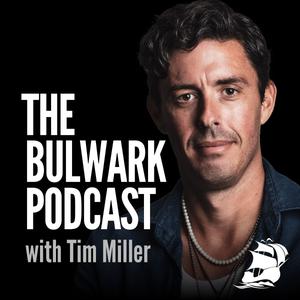 The Bulwark Podcast
The Bulwark Podcast
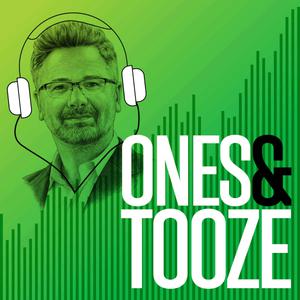 Ones and Tooze
Ones and Tooze
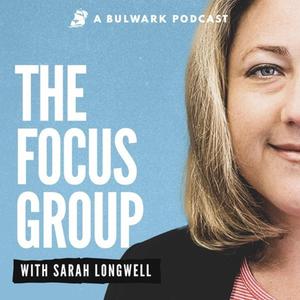 The Focus Group Podcast
The Focus Group Podcast
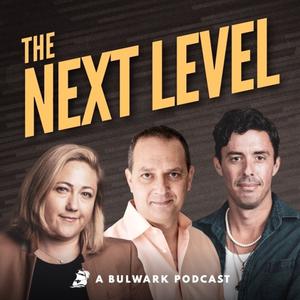 The Next Level
The Next Level
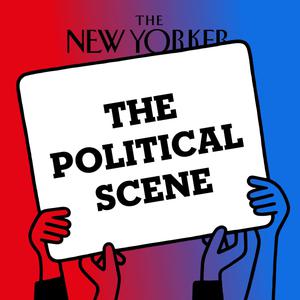 The Political Scene | The New Yorker
The Political Scene | The New Yorker
 The Lawfare Podcast
The Lawfare Podcast